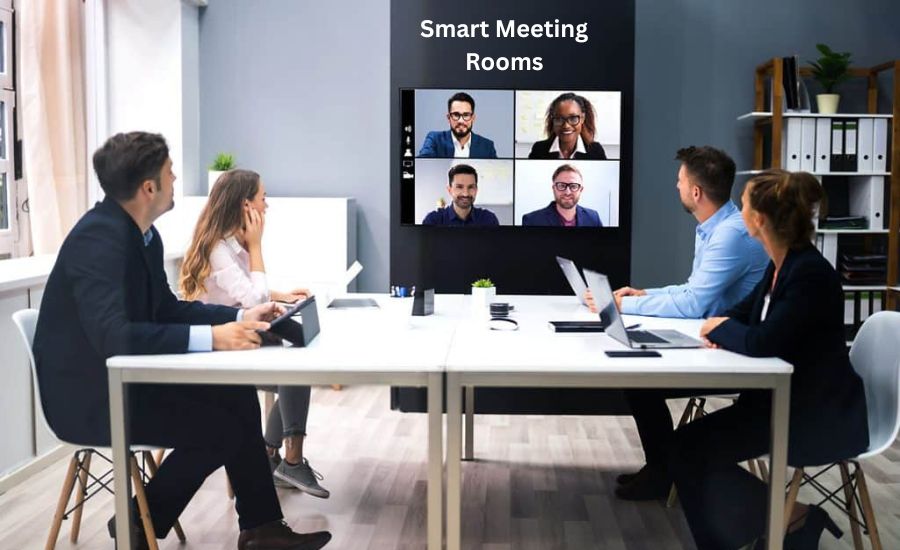As workplaces evolve and technology becomes an integral part of business operations, smart meeting rooms are emerging as a pivotal element in enhancing collaboration. Designed to make meetings more productive, these rooms are equipped with advanced technology, ensuring seamless communication and an efficient workflow. With organizations increasingly prioritizing efficiency and convenience, smart meeting rooms offer a glimpse into the future of workplace collaboration. This guide explores what makes these rooms “smart” and examines their growing relevance in India’s business landscape.
What Are Smart Meeting Rooms?
Smart meeting rooms go beyond traditional setups by integrating cutting-edge technology to facilitate a smoother meeting experience. These meeting rooms in Bengaluru or anywhere across India are equipped with features such as voice-activated controls, high-quality video conferencing tools, and automated scheduling systems. The goal is to create an environment where technology supports seamless communication and decision-making, regardless of whether participants are in the same room or joining remotely.
One defining feature of a smart meeting room is its connectivity. These rooms often include advanced audiovisual systems, ensuring that presentations, video calls, and collaborative tasks are conducted without technical disruptions. High-resolution screens, noise-cancelling microphones, and smart cameras that track speakers are some of the tools that enhance the meeting experience. Additionally, many smart rooms integrate with cloud-based platforms, allowing participants to access documents, share screens, and collaborate in real-time.
Automation plays a significant role in making these rooms “smart.” For instance, lighting and temperature can adjust automatically based on room occupancy, creating a comfortable environment without manual intervention. Voice-activated systems allow users to control presentations, initiate calls, or adjust settings with simple commands. These features save time and eliminate the need for technical troubleshooting, letting participants focus on the meeting’s objectives.
Smart meeting rooms also prioritize accessibility. By leveraging artificial intelligence and adaptive technologies, they cater to diverse needs. Features like real-time transcription, language translation, and screen sharing make these spaces inclusive, ensuring that all participants can contribute effectively.
Smart Meeting Rooms: Just a Trend in India?
The adoption of smart meeting rooms is growing steadily across India, driven by the country’s rapid digitization and the rising demand for advanced workplace solutions. While this trend is more pronounced in metropolitan cities and tech hubs, it is gradually gaining traction among businesses of all sizes. The question arises: Is this growth indicative of a passing trend, or does it reflect a lasting shift in how organizations approach workplace collaboration?
India’s unique business environment plays a key role in the adoption of smart meeting rooms. With the rise of hybrid work models, organizations are prioritizing spaces that accommodate both in-person and virtual participation. Smart meeting rooms meet this demand by offering features that make collaboration across geographies seamless. For example, businesses in India with teams spread across various cities or working remotely benefit greatly from the ability to conduct high-quality virtual meetings without compromising on efficiency.
Affordability remains a concern for some businesses, especially smaller enterprises and startups. However, coworking spaces and serviced office providers are addressing this gap by offering smart meeting rooms on a rental basis. This approach makes the technology accessible to businesses that may not have the resources to set up their own smart spaces. As these providers expand their footprint, the availability of smart meeting rooms is likely to increase, making them a standard feature in urban business districts.
The integration of smart meeting rooms into India’s corporate culture is also supported by the country’s tech-savvy workforce. Employees are quick to adapt to new tools and technologies, making it easier for organizations to embrace advanced solutions. The emphasis on efficiency and productivity further drives businesses to invest in spaces that offer tangible benefits, such as reduced meeting times and improved collaboration.
That said, challenges remain. The adoption of smart meeting rooms in India is not uniform across industries. While technology and IT sectors are leading the way, traditional industries may take longer to transition due to budget constraints and limited exposure to advanced technologies. Additionally, reliable internet connectivity, a prerequisite for smart meeting rooms, can be inconsistent in certain regions, posing a barrier to adoption.
Despite these challenges, the trajectory suggests that smart meeting rooms are more than a passing trend in India. As technology becomes more affordable and businesses recognize the benefits of these spaces, their adoption is expected to grow. The integration of smart meeting rooms reflects a broader shift toward modernizing workplace infrastructure, aligning with global standards while catering to India’s unique business needs.
Conclusion
Smart meeting rooms represent the future of workplace collaboration, offering a blend of technology and functionality to enhance productivity. These spaces go beyond traditional setups by integrating tools that simplify communication, improve decision-making, and foster inclusivity. In India, the growing adoption of smart meeting rooms reflects the country’s ongoing digital transformation and its commitment to modernizing business operations.
While affordability and infrastructure challenges may slow adoption in certain sectors, the benefits of smart meeting rooms are too significant to ignore. By providing flexibility, convenience, and advanced tools, these spaces empower organizations to adapt to evolving work dynamics and compete on a global scale. Whether for startups in coworking spaces or established corporations in metropolitan hubs, smart meeting rooms are poised to become an indispensable part of India’s business landscape. Their relevance underscores a broader trend of embracing innovation to meet the demands of a rapidly changing workplace.
Get latest update on DiscoverEssential.com
